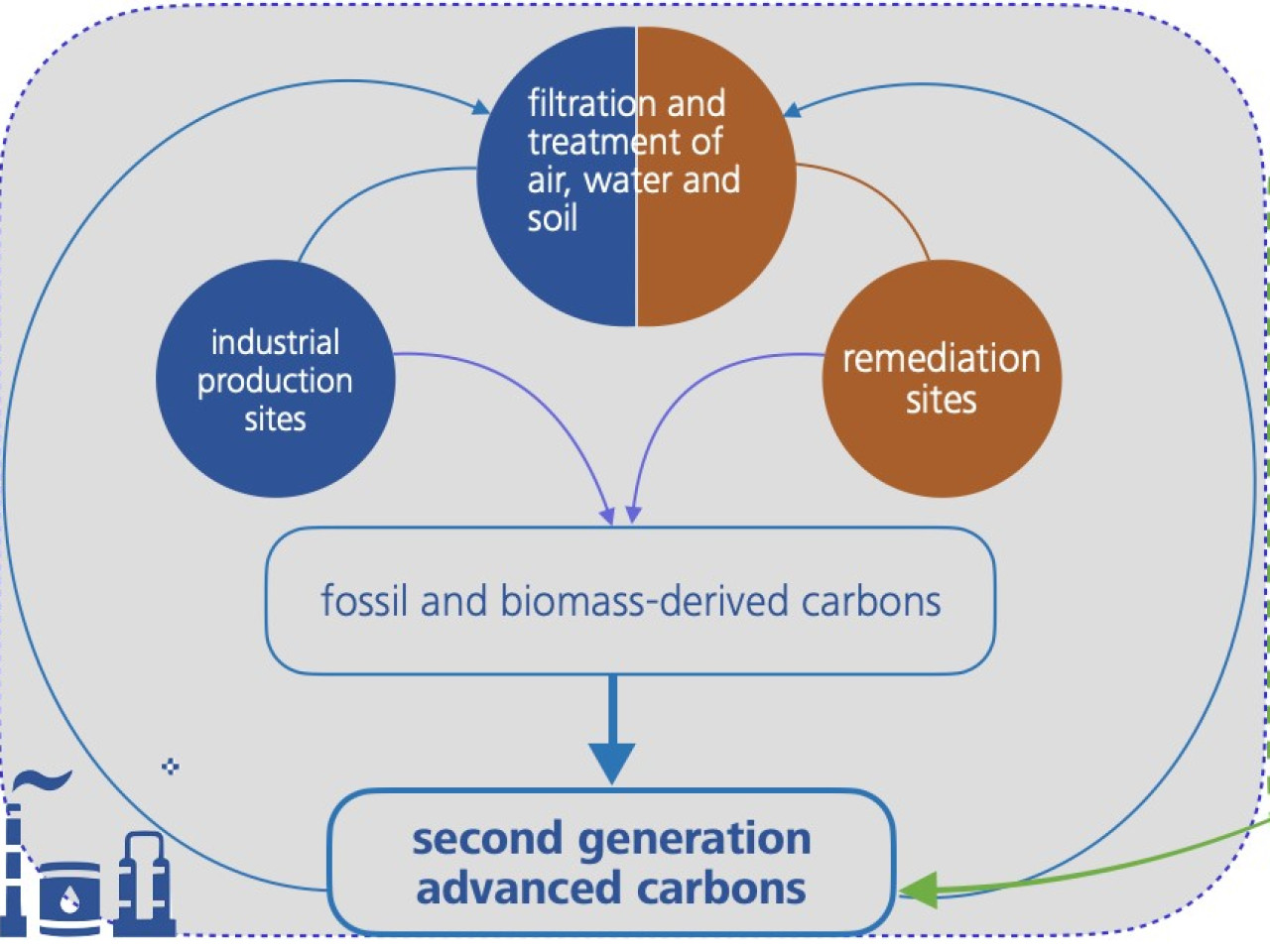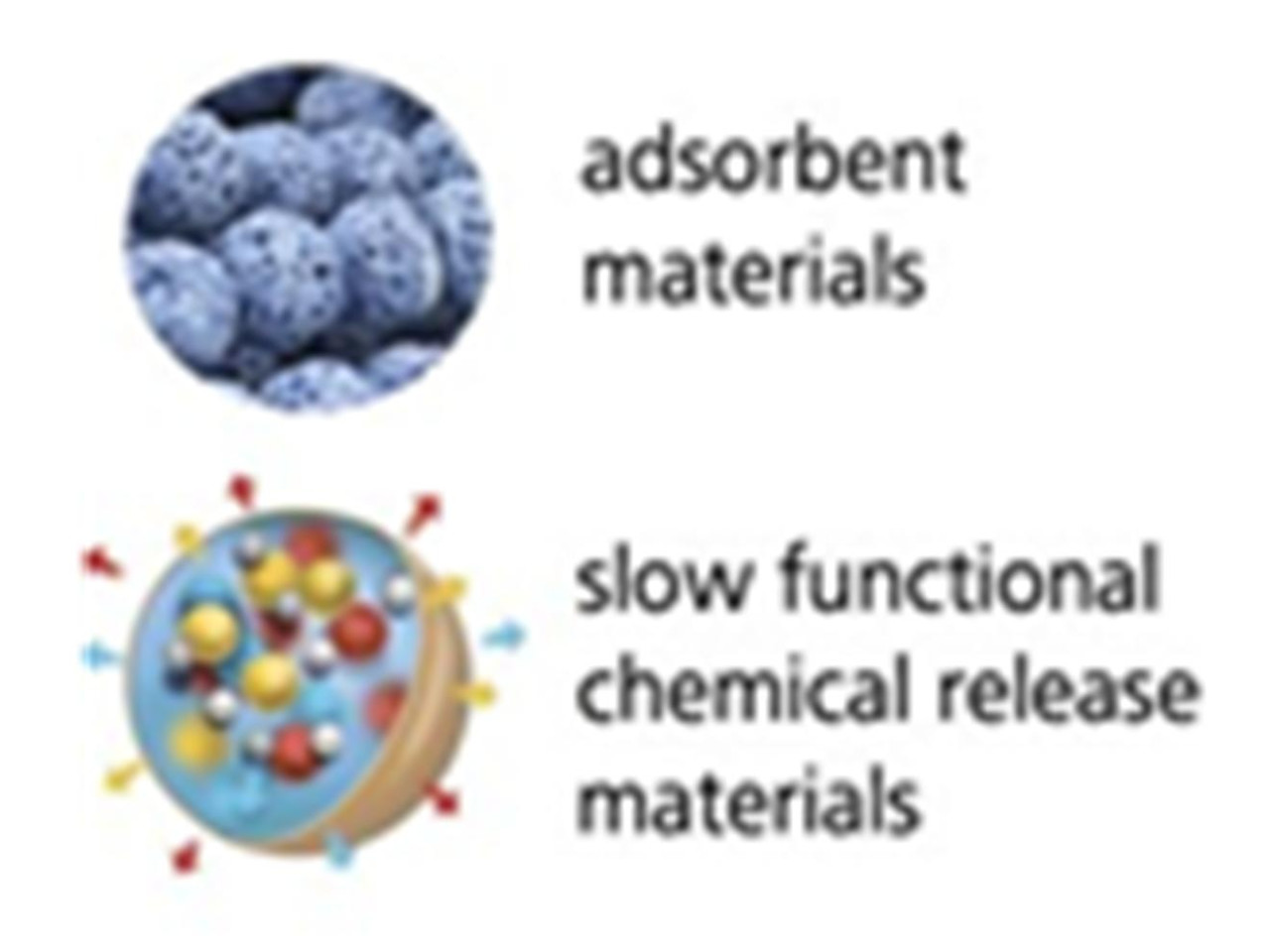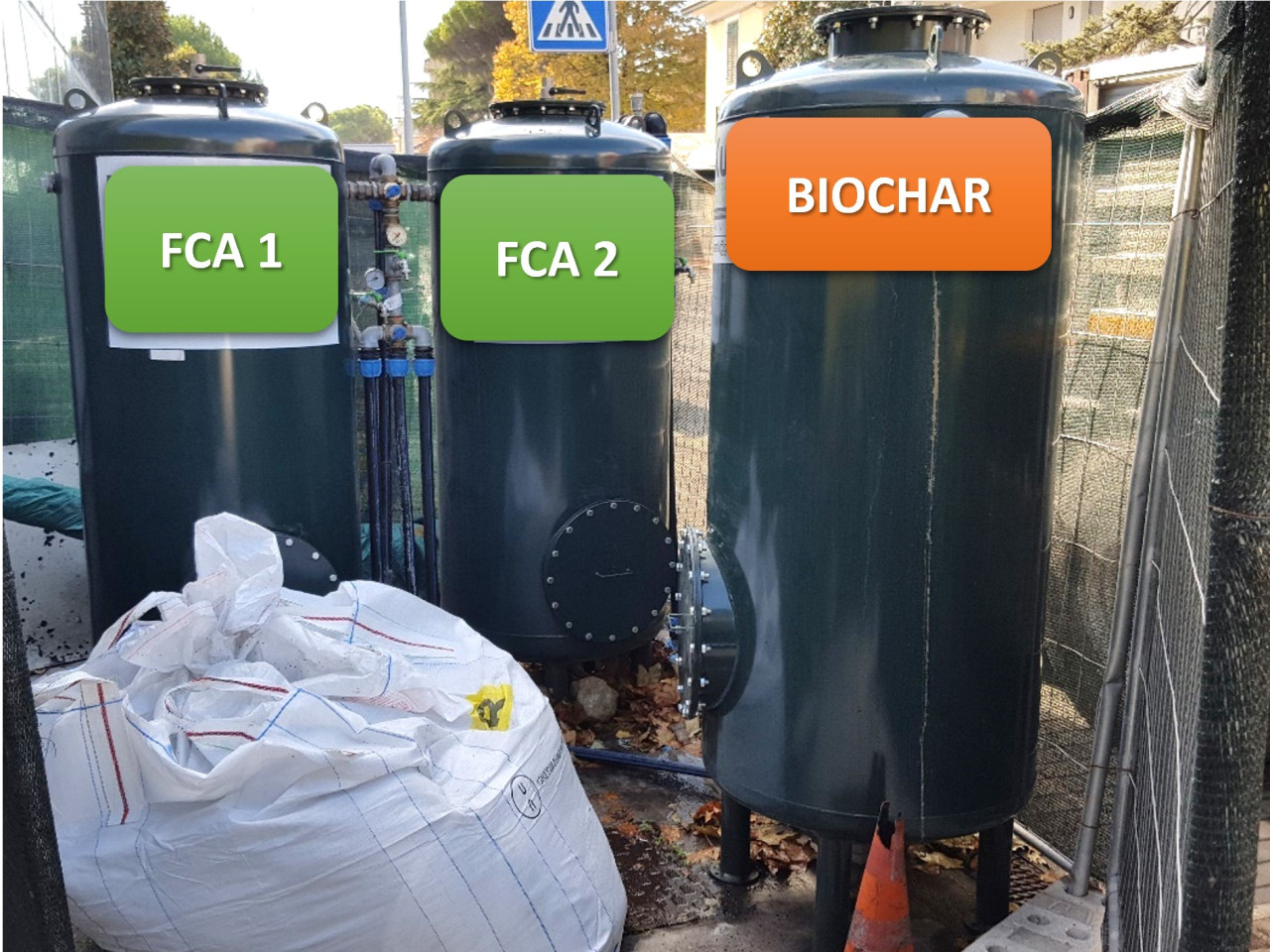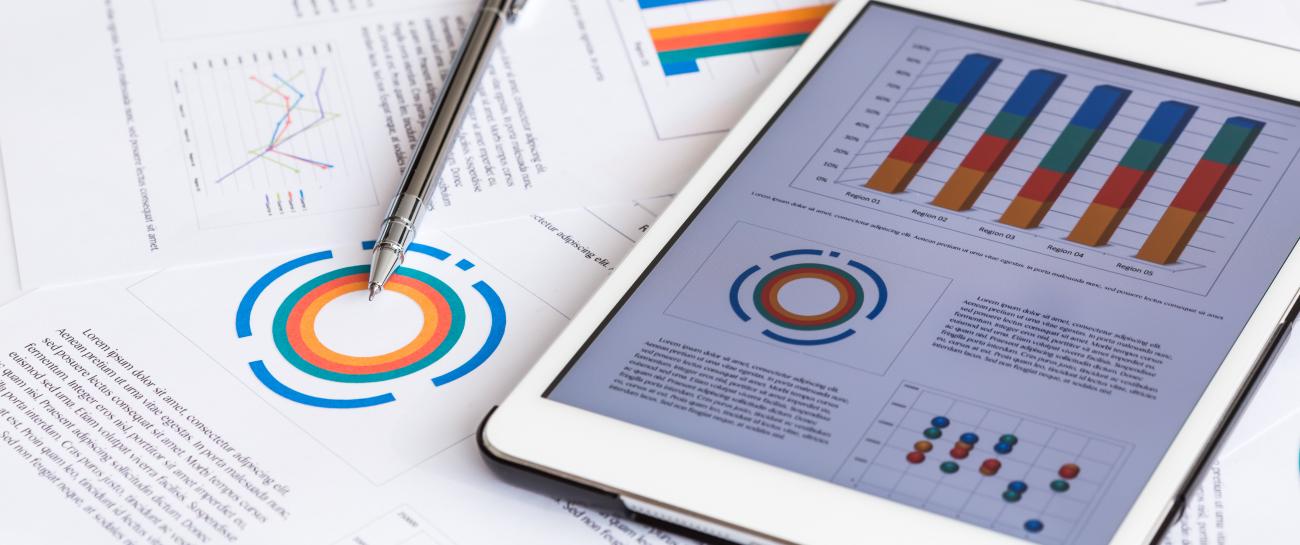The main product of this technology is a char produced through thermochemical treatment of organic waste and functionalized for several specific applications by engineering the functionalization methods.
The service offered includes the recovery process of the feedstock, possibly also on-site where it is generated.
The main application of these carbons is wastewater treatment and water remediation, but they can be used also for other targets, including agricultural soil improvement as well as recovery/reuse of nutrients from wastewater.
 Advanced carbons derive from organic by-products or waste, containing carbon of biological origin, fossil carbon and mineral components (metals, alkalis and other inorganic components) for the prepara
Advanced carbons derive from organic by-products or waste, containing carbon of biological origin, fossil carbon and mineral components (metals, alkalis and other inorganic components) for the prepara
List of services:
- Develop recovery, recycling and reutilisation pathways from biogenic residues, waste and recycled fossil material up to carbon-based materials regeneration.
- Design of newly functional and composite materials to recover nutrients and to remove pollutants, with new chemical and microbial functionalisation.
- Production of biogenic carbon-based materials and related laboratory tests.
- Production of soil improvers from compost and carbon-based materials co-maturation.
- Bio-engineering of carbon-based materials.
- Prediction of long-term effects and carbon sequestration potentials.
Innovative technologies and related available skills:
- Creation of a valid alternative to activated carbon with a cheaper waste-derived material that can be also useful for specific applications.
- Implementation of a small and medium-scale on-site production and characterization of advanced carbons from agricultural residues in a view of industrial symbiosis.
- New and cheaper methods of functionalization of advanced carbons for peculiar purposes.
- Production of composite advanced carbon for nutrient recovery (P and N).
- Implementations of techniques for the removal and valorisation of ammonia in waste sewage.
- Use of advanced carbon enriched with nutrients for composting.
- Study of the interaction between microorganisms and advanced carbons (mechanisms and applications).
Adsorbent materials (alternative to activated carbons)
- Treatment of urban and industrial effluents: recovery of nutrients (P. N) and critical raw materials
- Soil and water remediation
Specific uses
- Batteries, accumulators, super condensers
- CO2 recovery and management
Modelling (Simulations, experiments, field observations)
Integration of different models (mathematical, physical, bio-ecological, economic and social) for:
- Evaluation of environmental systems (e.g. soil quality)
- Agricultural soil improvement
- Carbon storage in soils, carbon credits
 Functionalized advanced chars: structure and applications.
Functionalized advanced chars: structure and applications.
Pruning valorisation and wastewater treatment: an industrial symbiosis process.
A contract is underway with a company for the development of advanced vegetable carbons for the replacement of activated carbons in the filtering of polluted waters and in the recovery of polluted soils. The project takes place under a framework agreement and references are subject to a confidentiality agreement.
However, the technology is aimed at any stakeholder who is interested in the valorisation of organic waste of biological and non-biological origin, but also at those interested in the application of functionalized materials.
Fraunhofer Institute
Patenting and business model under development
 Application of biochar for water remediation in a Pump & Treat plant
Application of biochar for water remediation in a Pump & Treat plant

